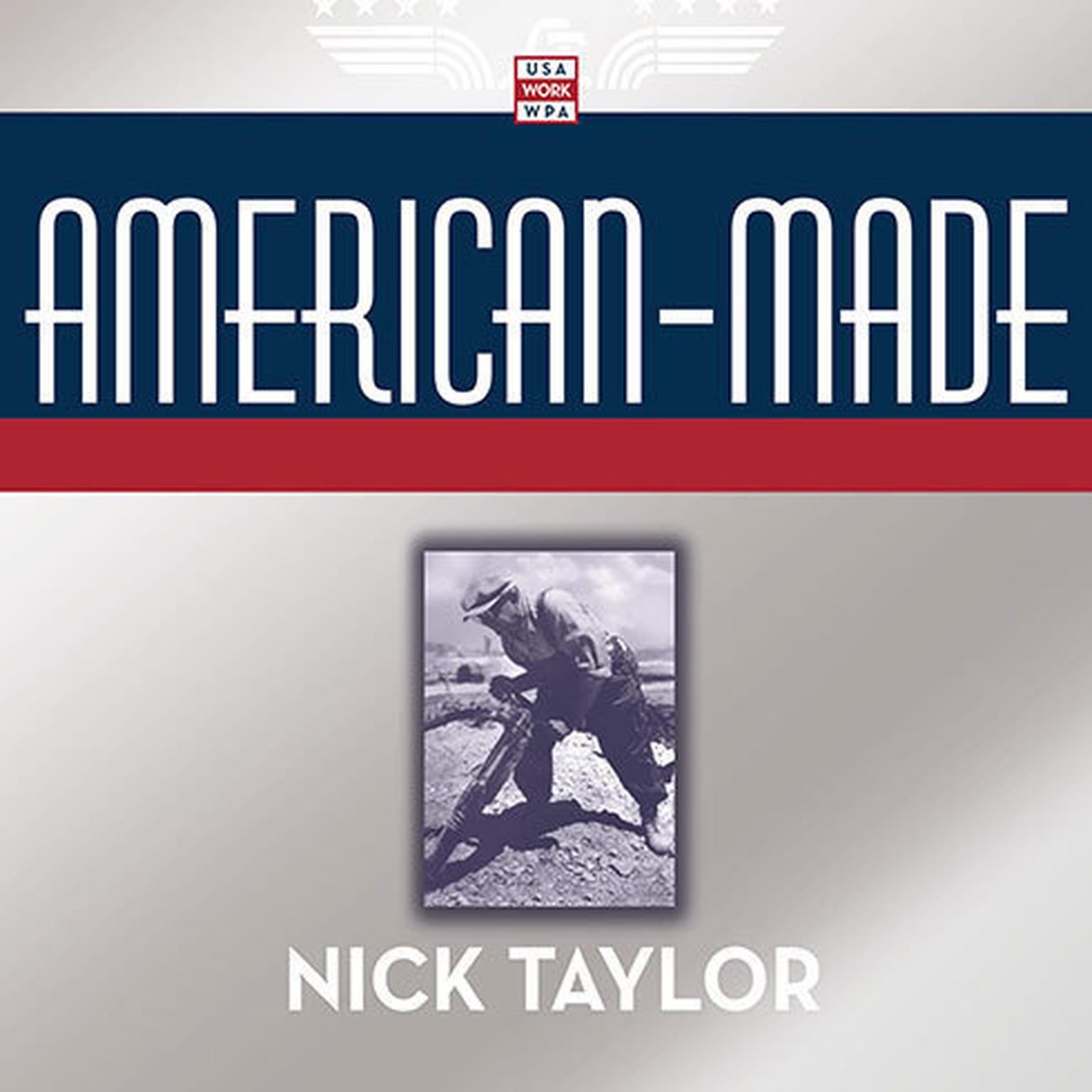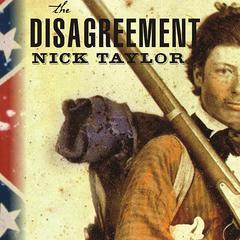 Play Audiobook Sample
Play Audiobook Sample
American-Made: The Enduring Legacy of the WPA: When FDR Put the Nation to Work Audiobook
 Play Audiobook Sample
Play Audiobook Sample
Quick Stats About this Audiobook
Total Audiobook Chapters:
Longest Chapter Length:
Shortest Chapter Length:
Average Chapter Length:
Audiobooks by this Author:
Publisher Description
When President Roosevelt took the oath of office in March 1933, he was facing a devastated nation. Four years into the Great Depression, a staggering 13 million American workers were jobless and many millions more of their family members were equally in need. Desperation ruled the land.
What people wanted were jobs, not handouts—the pride of earning a paycheck. And in 1935, after a variety of temporary relief measures, a permanent nationwide jobs program was created. This was the Works Progress Administration (WPA), and it would forever change the physical landscape and the social policies of the United States.
The WPA lasted for eight years, spent $11 billion, employed 8.5 million men and women, and gave the country not only a renewed spirit but a fresh face. Under its colorful head, Harry Hopkins, the agency's remarkable accomplishment was to combine the urgency of putting people back to work with its vision of physically rebuilding America. Its workers laid roads and erected dams, bridges, tunnels, and airports. They stocked rivers, made toys, sewed clothes, and served millions of hot school lunches. When disasters struck, they were there by the thousands to rescue the stranded. And all across the country the WPA's arts programs performed concerts, staged plays, painted murals, delighted children with circuses, and created invaluable guidebooks. Even today, more than sixty years after the WPA ceased to exist, there is almost no area in America that does not bear some visible mark of its presence.
Politically controversial, the WPA was staffed by passionate believers and hated by conservatives; its critics called its projects make-work, and wags said WPA stood for "We Piddle Around." The contrary was true. We have only to look about us today to discover its lasting presence.
Download and start listening now!
"With all the comparisons made to the Depression and our current economic conditions, I was interested in learning more about how Roosevelt handled the high unemployment rate. While I usually don't choose historical books, this one was a great read. The chapters were short, and the details of a particular program were told in relation to the plight of a real person. Yes, there is a lot of politics involved, but I learned so much about the art, the writing, and the buildings that were created during that time. I also picked up fascinating tidbits like why Camp David was started as a presidential retreat. I grew up hearing many stories about the Depression, but this gave me a wider view."
— Karen (4 out of 5 stars)
Quotes
-
“Taylor details as well the dicey intramural politics in Congress over which states and districts would get the largest slice of the WPA pie. All told, Taylor’s volume makes for a splendid appreciation of the WPA with which to celebrate the upcoming 75th anniversary of the New Deal’s beginnings in 1933.”
— Publishers Weekly (starred review) -
Vivid, engagingly written
— San Francisco Chronicle -
“Taylor has written a passionate defense of a program that millions saw as a godsend.”
— Booklist
American-Made Listener Reviews
-
" A pretty comprehensive review of the WPA, including specific examples to illustrate the work. "
— Gloria, 2/4/2014 -
" Not quite just a paean to the WPA. Some great descriptions of Washington wheeling and dealing; some not as fabulous descriptions of individual WPA projects (such as Timberline lodge); and a little too much World War II. "
— Lucinda, 1/16/2014 -
" Interesting book; may be too uncritical of the WPA at times, but it has many good anecdotes. "
— Tracy, 1/10/2014 -
" The author is a fan of FDR and makes that clear from the start. It's a very affectionate tone throughout. I really liked the personal stories of WPA workers and leadership - makes that time in history really come to life. So many parallels with our situation today, including the conflict btw President and Supreme Court! "
— Erika, 12/28/2013 -
" Kind of inspiring, I thought. Highlights the accomplishments of the WPA. Quite timely. But also controversial as some believe the country would have been better off without those "make work" projects. Hard to know. "
— Ann, 12/14/2013 -
" Loved this book - great non-fiction about the WPA (Works Project Administration). I say bring back the WPA! "
— Mary, 12/8/2013 -
" This is more of an overview than a deep historical analysis, but it is a good overview. What I found most intriguing were some eerie paralells between politicians' statements about the faltering economy then and today. Fortunately, the legacy of the New Deal should prevent our current economic situation from sinking to the depths of despair that prompted the creation of the WPA, but it is unfortunate that today's leaders are unlikely to learn any lessons from the events of that period. "
— Michael, 12/8/2013 -
" Can you say "stimulus"? Before reading this book I was unaware of the breadth of the programs funded by the WPA. I found an excellent counterpart to the book "Traitor to His Class" which covers the political aspects of FDR's administration. I preferred "American Made". "
— Lynne, 11/4/2013 -
" Very interesting well written book about one of the most important on the alphabet agencies of the New Deal. Boy do I have some friends who could use a WPA now. "
— Laura, 7/26/2013 -
" Oh, I wish a WPA or CCC program could work today to help get us back to work and out of this recession! "
— Joni, 7/24/2013 -
" Couldn't finish it in time before was due back at library (and couldn't renew), so I skimmed the arts programs - 'cause that's how I am! "
— Erin, 4/7/2013 -
" Excellent audio book on the history of the WPA. Taylor covers the history of the project in a thorough and interesting manner. Political deals are interspersed with personal tales. "
— Stephanie, 8/21/2012 -
" I'm actually currently "listening" to this book. I loved the historical detail leading up to the WPA. I'm getting a little bored with the middle talking about the art and music. I'm sticking it out for awile longer. I just never could finish! "
— Lori, 5/6/2012 -
" Did enjoy reading. A tremendous volume of facts with many human faces but would have preferred a few more tales of innovation for survival. "
— Dennis, 1/9/2012 -
" Not exactly a thriller to read, but totallyl relevant in these economic times and enlightening since in High School the football coach/american history teacher never mentioned any of this stuff. Fascinating and chilling. And oh so appropriate. "
— Leslita, 11/9/2011 -
" Great book. I liked the aternation of history with more personal accounts. Would like to read this again someday. "
— Joann, 10/16/2011 -
" Very nice history of the WPA. I had no idea how this organization was put together and the incredible patriots that made jobs possible. If only they were here today. "
— Mary-Ellen, 8/2/2011 -
" An interesting read on one of the most surprisingly influential government programs of all time. Provides a great insight onto an incredibly trying time in American history. "
— Slavoj, 1/19/2011 -
" The book provides a look at the scope and accomplishments of the Works Progress Administration from the time of its inception until it was discontinued. "
— Glen, 12/11/2010 -
" It was very interesting to read this book in light of our current economic crisis, and to see some of the ways in which government can help. "
— Carrie, 5/4/2010 -
" I had really hoped that President Obama would institute a program similar to the New Deal's WPA. There's still time, Barry! "
— InfoShaman, 1/23/2010 -
" Did enjoy reading. A tremendous volume of facts with many human faces but would have preferred a few more tales of innovation for survival. "
— Dennis, 8/30/2009
About Nick Taylor
Nick Taylor is a graduate of the MFA program at the University of Virginia. His debut novel, The Disagreement , won the 2009 Michael Shaara Prize for Excellence in Civil War Fiction. Taylor is currently an associate professor of English at San Jose State University.
About James Boles
James Boles is an accomplished audiobook narrator whose work includes such titles as Tulia: Race, Cocaine, and Corruption in a Small Texas Town by Nate Blakeslee and A Disorder Peculiar to the Country by Ken Kalfus. He is also an award-winning stage actor. He lives in Stratford, Connecticut.




